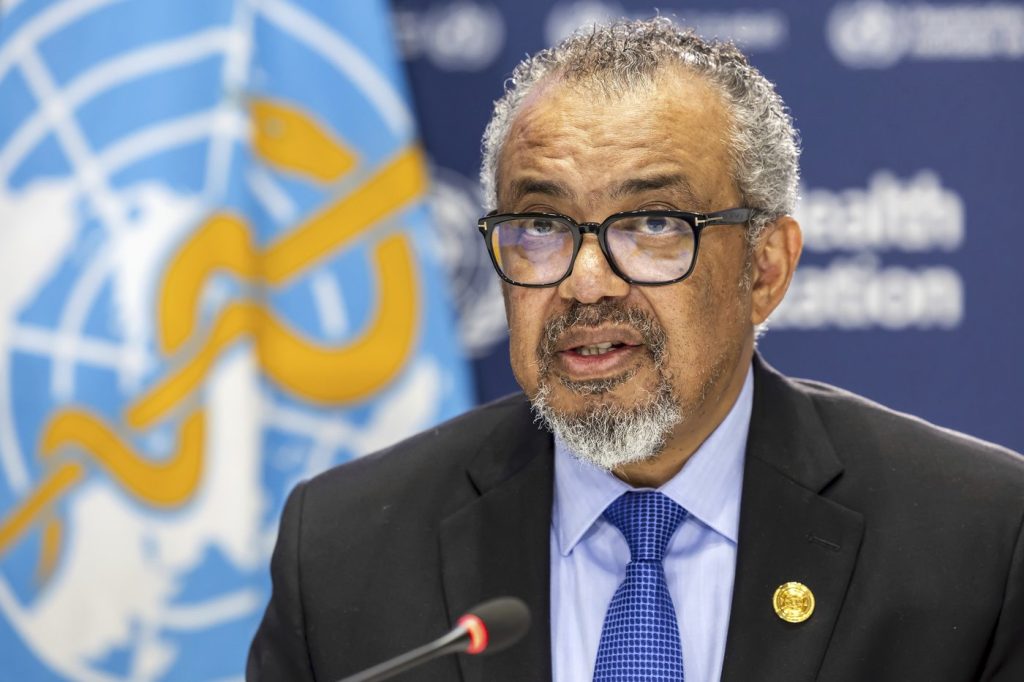World
WHO Declares End of Mpox Emergency in Africa After 15 Months

The World Health Organization (WHO) has officially lifted its designation of the mpox outbreak in Africa as an international health emergency. In a statement made on Friday, WHO Director-General Tedros Adhanom Ghebreyesus announced that the organization’s emergency committee advised that the situation no longer meets the criteria for a global health emergency. This decision comes more than a year after the outbreak was declared an emergency in August 2022.
The new form of mpox first emerged in early 2024 in the Democratic Republic of the Congo and neighboring countries. The virus, transmitted through close contact, including sexual activity, raised significant concerns due to its rapid spread. Following the initial outbreak, the WHO implemented extensive public health measures and resource allocation aimed at controlling the situation.
Dr. Tedros emphasized that while the emergency designation has been lifted, this does not imply that the threat has been completely eradicated. “Of course, lifting the emergency declaration does not mean the threat is over, nor that our response will stop,” he stated. The WHO’s international emergency status is its highest alert level, which allows for the mobilization of resources and boosts public awareness campaigns.
Mpox, which is caused by a virus related to smallpox, is endemic in certain regions of Africa. It can be contracted through bites from infected rodents or smaller animals. Symptoms can range from mild to severe, with common signs including fever, chills, and body aches. In more serious instances, lesions may appear on the face, hands, chest, and genitals.
Despite the lifting of the emergency status, health officials remain vigilant. The WHO continues to stress the importance of ongoing surveillance and public health measures to ensure that any resurgence of the disease is swiftly addressed. The transition from emergency to routine management reflects a broader understanding of the disease’s endemic nature and the need for long-term strategies in affected regions.
This development underscores the evolving nature of public health responses to infectious diseases and the importance of global cooperation in managing such health challenges. As countries work towards recovery and normalcy, the lessons learned from the mpox outbreak will be critical in shaping future strategies for disease control and prevention.
-

 Politics4 weeks ago
Politics4 weeks agoSecwepemc First Nation Seeks Aboriginal Title Over Kamloops Area
-

 World5 months ago
World5 months agoScientists Unearth Ancient Antarctic Ice to Unlock Climate Secrets
-

 Entertainment5 months ago
Entertainment5 months agoTrump and McCormick to Announce $70 Billion Energy Investments
-

 Science5 months ago
Science5 months agoFour Astronauts Return to Earth After International Space Station Mission
-

 Lifestyle5 months ago
Lifestyle5 months agoTransLink Launches Food Truck Program to Boost Revenue in Vancouver
-

 Technology3 months ago
Technology3 months agoApple Notes Enhances Functionality with Markdown Support in macOS 26
-

 Lifestyle3 months ago
Lifestyle3 months agoManitoba’s Burger Champion Shines Again Amid Dining Innovations
-

 Top Stories2 months ago
Top Stories2 months agoUrgent Update: Fatal Crash on Highway 99 Claims Life of Pitt Meadows Man
-

 Politics4 months ago
Politics4 months agoUkrainian Tennis Star Elina Svitolina Faces Death Threats Online
-

 Sports5 months ago
Sports5 months agoSearch Underway for Missing Hunter Amid Hokkaido Bear Emergency
-

 Politics5 months ago
Politics5 months agoCarney Engages First Nations Leaders at Development Law Summit
-

 Technology5 months ago
Technology5 months agoFrosthaven Launches Early Access on July 31, 2025





















